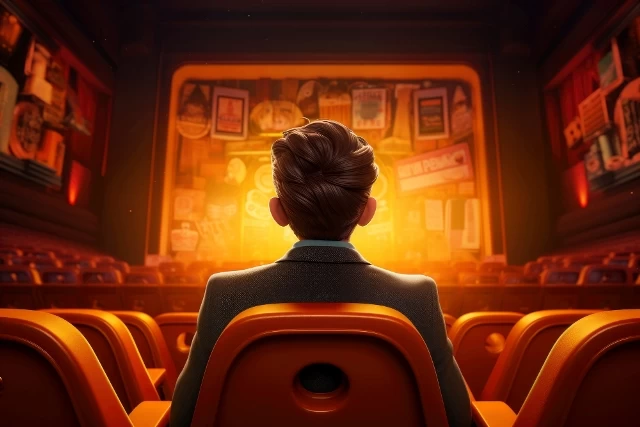
Cinematherapy: The Psychological Healing Power of Cinema
- Cinematherapy: The Psychological Healing Power of Cinema
- What is Cinematherapy?
- Common Points of Cinema and Psychiatry
- The Psychotherapeutic Effect of Cinema
- Stages of Cinematherapy
- Benefits of Cinematherapy
What is Cinematherapy?
Cinema, which entered our lives with the 40-50 second films made by the Lumiere brothers in 1895, has come a long way throughout history and has become a part of our lives as well as a means of entertainment and relaxation for people. Sometimes presenting excerpts from real life, sometimes from the world of fantasy, cinema, with its visual and auditory richness, can create deep effects and emotional changes in people. It has been criticized by some critics for possibly contributing to the emergence of aggressive behavior due to its inclusion of anti-heroes and negative behavior examples. From this perspective, cinema's ability to bring about changes in human behavior as a result of being modeled by its audience can also be effective in reinforcing positive behaviors and promoting healing.
Common Points of Cinema and Psychiatry
The most important common point between cinema and psychiatry is that both focus on the 'human' at the center of their field of work. Both focus on the thoughts, feelings, and behaviors of humans. Schneider emphasized the intertwining of cinema and psychiatry by stating, "If psychiatry did not exist, cinema would definitely have to invent it."
The Psychotherapeutic Effect of Cinema
Cinema strengthens the therapist's hand as a metaphor in the process of psychotherapy by facilitating the gaining of insight. It allows the client to look at segments of real life from a safe distance, making it easier for the client to tolerate.

Stages of Cinematherapy
Cinematherapy progresses in 3 stages.
- Identification stage: The client is encouraged to see similarities between themselves and the characters in the film. This leads to an investigation of their own thoughts, feelings, and behaviors.
- Catharsis stage: By observing the characters in the film and feeling the connection with themselves, previously suppressed emotions are brought to the surface, released, and thus facilitating purification.
- Insight stage: By witnessing the character's problems and solutions, the client gains awareness of their own problems and increases their capacity to generate new solutions.
Benefits of Cinematherapy
According to studies investigating the effectiveness of cinematherapy, it has been observed to be effective in resolving many psychiatric/psychological disorders and problems.
- Depression
- Alcohol-substance addiction
- Obsessive-compulsive disorder
- Schizophrenia
- Personality disorders
- Bereavement process
- Relationship problems
- Traumatic situations such as rape - harassment
- Adaptation processes such as adoption
Stay healthy…

Specialist Dr. Tuba Öğer
Psychiatrist





